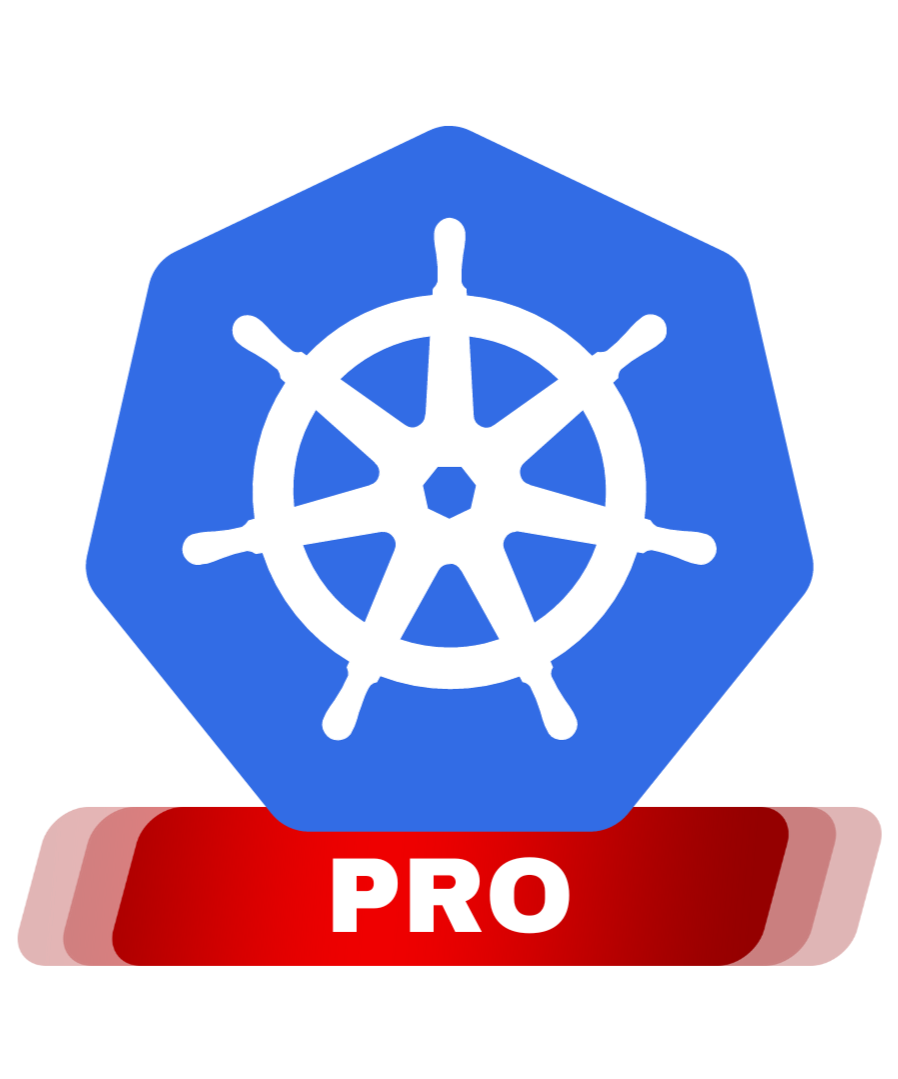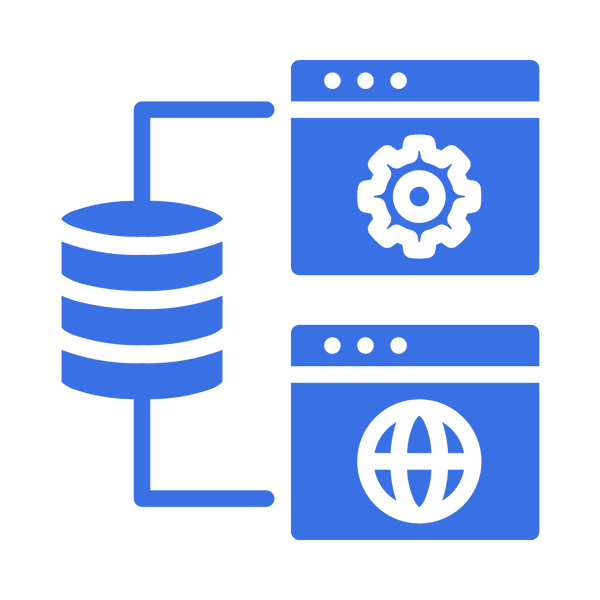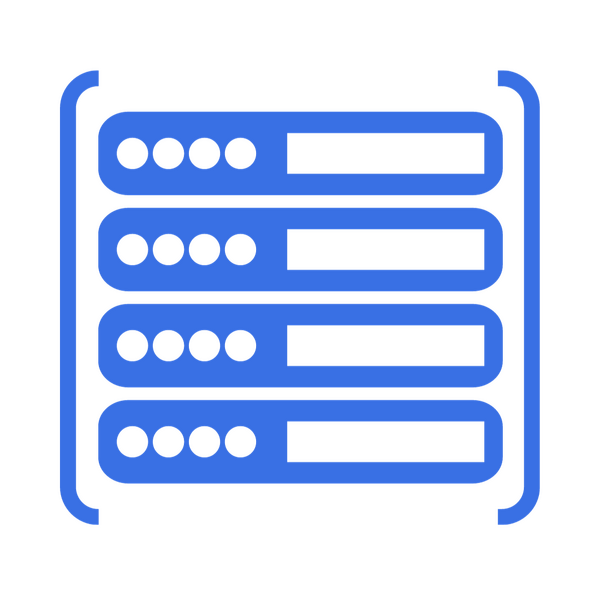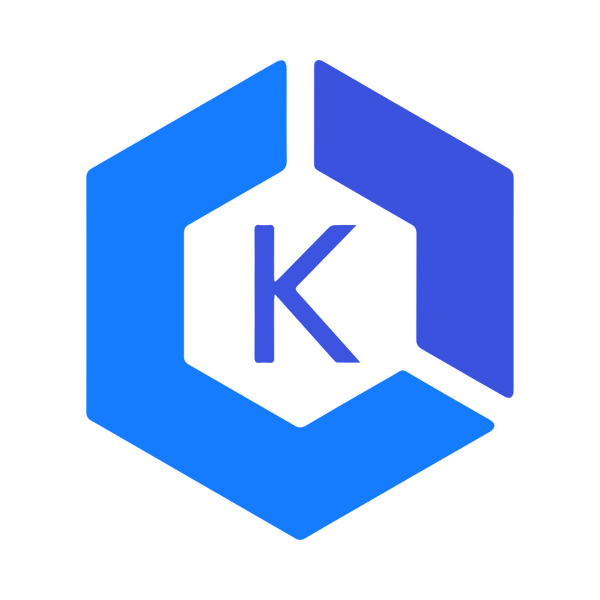Kubernetes PRO Course
Learn Kubernetes advanced features
Tutorials are just not enough to build professional platforms based on Kubernetes.
Gain expert skills and harness the full power of Kubernetes.

What is it
The Kubernetes PRO course provides advanced knowledge and ready-to-use solutions for production environments.
This course helps you understand and use Kubernetes' built-in features and Platform Engineering strategies.To build professional solutions, you need more than just basic knowledge from tutorials or documentation, which is often just too overwhelming. This course is NOT like the others and is designed for those who want to gain real expert skills.
The course is not yet ready and is under development.
If you are interested, please vote for the modules below and I will contact you when it is ready.
Why Kubernetes PRO
Save (a lot of) time

You could probably use other sources to get a similar level of knowledge, but it would take you much longer.
You may have more experienced colleagues, but they are probably too busy to teach you.Time is a precious resource we have so little of.
Gain expert skills

Knowing how to deploy simple apps or use templates created by someone else (or something else like AI) is not enough.To become an expert, you need to understand how and when to use Kubernetes’ advanced features.
Build production-grade platforms

In order to use Kubernetes as a core component of the platform for various applications (including building blocks for AI, LLM, ML) you must learn how to ensure its reliability, security, scalability and cost-effectiveness.Only then you’ll be ready to start building great platforms and running production workloads on them.
Modules
The modules below will be created and published according to the order of number of votes received.
Cast your vote and subscribe to the news on the course at the same time. When the module is available for purchase, you will be notified by email.NOTICE: You can vote for many modules.
Features
Concise videos
Each module consists of a number of video lessons with easy-to-understand explanations and practical examples that can be applied in production environments.
Helpful diagrams
Most of us are visual persons and diagrams can significantly reduce the learning curve for even the most complex topics.
Practical labs
Theory is not enough to understand how particular problems can be solved and easy-to-apply labs make the topics close to real world use cases.
Author

I'm Tom and I was involved with Kubernetes long before it became so popular
I've always been nuts about automation and use the cloud, containers and Kubernetes to build efficient platforms for applications.The last few years I have spent thousands of hours in training rooms teaching hundreds of people about Kubernetes.
I have also helped many companies use the practical aspects of the new Cloud Native approach to build modern platforms based on containers and Kubernetes or OpenShift.I've earned over a dozen industry certifications from the major vendors to become knowledgeable about best practices (see my LinkedIn profile for details).
Professional Training
Are you interested in professional on-site or online training?
Do you want to learn with a professional trainer?
Do you need specialist knowledge about Kubernetes?Trust the expert trainer who has been providing training on Kubernetes for the last past years.
I ❤️ to explain even the most advanced parts in an accessible way.

Contact
Production-ready Azure AKS cluster
What you will learn
✔ What production-ready options to choose for your AKS cluster
✔ How to prepare AKS for stateful applications
✔ How to configure autoscaler for the cluster
✔ Which network option to choose and how to enable advanced options
✔ How to configure auto-updates for the cluster
✔ How to integrate Container Insights with AKS for logging and metrics gathering
✔ How to access Azure cloud services from pods using the Workload Identity feature
Vote for this module
Production-ready AWS EKS cluster
What you will learn
✔ What production-ready options to choose for your EKS cluster
✔ How to prepare EKS for stateful applications
✔ How to configure autoscaler for the cluster
✔ Which network option to choose and how to enable advanced options
✔ How to apply updates to the cluster
✔ How to integrate Cloudwatch with EKS for logging and metrics gathering
✔ How to access AWS cloud services from pods using the Workload Identity feature
Vote for this module
Production-ready Google GKE cluster
What you will learn
✔ What production-ready options to choose for your GKE cluster
✔ How to prepare GKE for stateful applications
✔ How to configure autoscaler for the cluster
✔ Which network option to choose and how to enable advanced options
✔ How to configure auto-updates for the cluster
✔ How to configure observability (logging and metrics gathering)
✔ How to access GCP cloud services from pods using the Workload Identity feature
Vote for this module
Securing network traffic
What you will learn
✔ What are the available methods for traffic control
✔ How to use the NetworkPolicy object to control Layer4 traffic
✔ How to extend traffic control with Layer7 policies (e.g. DNS, HTTP)
✔ How to implement identity-based traffic control
✔ How to implement traffic encryption with different technologies
✔ What is Container Network Interface (CNI) and how it works
Vote for this module
Troubleshooting applications in the cluster
What you will learn
✔ What are ephemeral containers and how to use them to troubleshoot running applications
✔ How to launch a copy of running pods
✔ How to diagnose issues with scheduling pods
✔ How to connect to and troubleshoot the nodes of the cluster
✔ What is the famous CrashloopbackOff status for a pod and how to troubleshoot it
✔ Best ways of using cluster events and logs to diagnose problems
Vote for this module
Enforcing policies with admission controllers
What you will learn
✔ What are admission controllers
✔ How the authorization path looks like in Kubernetes
✔ How to use Kyvero to enforce policies and modify API requests
✔ How to use the built-in CEL mechanism to enforce policies
✔ How to use PodSecurity admission control to secure the pods
✔ How to write your own admission webhook
Vote for this module
Managing stateful workloads
What you will learn
✔ How to use StatefulSet objects
✔ What are the differences between StatefulSet and Deployment
✔ Advanced use of persistent volumes
✔ Taking snapshots, cloning, restoring data
✔ What is Container Storage Interface
✔ Managing databases with selected operators
Vote for this module
Progressive applications delivery
What you will learn
✔ How to implement canary releases on Kubernetes
✔ How to implement A/B testing
✔ How to implement blue/green deployments
✔ How to automate progressive delivery with Argo rollouts
✔ How to implement feature flags with OpenFeature
Vote for this module
On-prem cluster from scratch
What you will learn
✔ What are recommended ways to provision nodes
✔ What are Kubernetes distribution recommended for on-prem clusters
✔ How to create cluster from scratch using the official kubeadm installer
✔ How to design cluster layout
✔ How to configure advanced setting for Kubernetes API component (options, feature gates, etc.)
✔ How to provide reliable and load-balanced access to Kubernetes API
✔ How to provide support for LoadBalancer Service type
✔ How to protect and encrypt the etcd database
Vote for this module
Advanced applications autoscaling
What you will learn
✔ What are the options for autoscaling pods
✔ How to use basic and advanced autoscaling with
HorizontalPodAutoscaler (HPA)
✔ How to use autoscale pods with KEDA
✔ How to autoscale cluster using standard cluster-autoscaler
✔ How to optimize cluster autoscaling with Karpenter
Vote for this module
Advanced cluster resource management
What you will learn
✔ How to use QoS classes to prioritize access to CPU and memory
✔ Best practices on how to assign requests and limits for different types of workloads
✔ When to use PriorityClass resource
✔ Why some objects should be restricted and how to do it with ResourceQuota
✔ How to use VerticalPodAutoscaler
✔ How to gather metrics from the cluster components
✔ What are three different types of metrics API and when to use them
Vote for this module
Securing access to API with RBAC
What you will learn
✔ What authentication methods are available for Kubernetes
✔ Where and how to define users and groups
✔ How to use service accounts for users authentication
✔ What are best practices for managing users
✔ How to create custom roles and assign them to users, groups or pods
✔ What are the differences between ClusterRole and Role objects
✔ How to grant access to Kubernetes API for pods
Vote for this module











